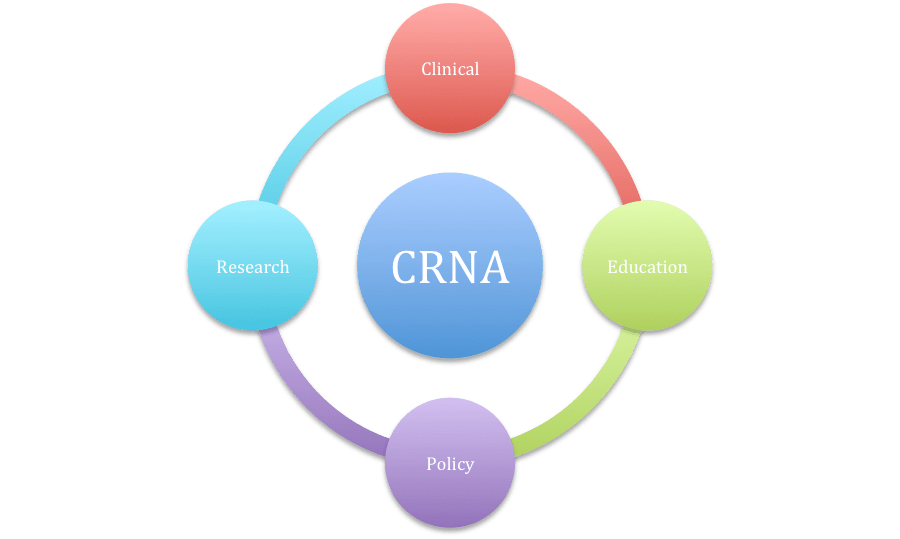I started nurse anesthesia school in August 2012. However, my journey actually began nearly 2 years months prior to that time. I shadowed a CRNA, participated in a number of committees within my unit, actively sought out challenging clinical scenarios and worked on a number of research articles with physicians. However, before we get into the admission requirements for nurse anesthesia school, take a moment and ask yourself why you’d like to be a CRNA. Is it for the money? The prestige? The knowledge? The skill set? Are you an adrenaline junkie? There’s no right or wrong answer to this, but at least think it through because you’ll be spending several years of your life pursuing a career. Once you answer that, the next question you should be asking yourself is, what does it mean to be a CRNA? You want to be able to at least articulate why anesthesia is a field you’re interested in pursuing. Setting that kind of intention before pursuing a new career will help guide your process into becoming a CRNA. Blindly going into the field without thinking about the answer to the aforementioned questions will certainly lead you to feel disappointment if you’re 2-3 years into this process and you’ve come to the realization that anesthesia isn’t for you.
So why did I want to be a CRNA?
There really wasn’t any one single reason why I wanted to be a CRNA. It was an amalgamation of experiences that led me to decide that being a nurse anesthetist would be a good fit for me. First off, I had the requisite experience. I worked a major academic medical institution in a high acuity, surgical transplant intensive care unit where I took care of extremely sick patients.
During my 2 year tenure in the ICU, I managed the postoperative care of these sick patients and would often come into contact with either a CRNA or anesthesiologist. The interactions that I had with these providers left me feeling curious about the kind of care these patients underwent in the OR. Of course, so did my interactions with the surgeons, but obviously, the education track to becoming a surgeon is much much longer than that of a CRNA. This curiosity led me to inquire about a shadowing opportunity with a CRNA.
Why do you want to be a CRNA?
It was this shadowing experience that ended up solidifying my decision to pursue anesthesia. I’m not going to go into great detail with this, but my shadowing experience and brief interactions with the anesthesia providers on my unit left me with a sense of intellectual curiosity that I had to pursue. I figured my experience as an ICU nurse dealing with intense, stressful experiences was a natural extension into the world of anesthesia. And so, after 2 years of preparation, I was admitted to a nurse anesthesia school and the rest is history.
Once you’ve answered the why, it’s time to move on to the what. So, what exactly does it mean to be a CRNA? Think this through thoroughly. If you can answer this question, you’re well on your way to easily getting into school. That’s the approach I took and I found the process of preparing, applying and interviewing for graduate school to be very easy.
To share a personal example, what does it mean to be a CRNA?
From my perspective, it’s about being a leader in nursing. The profession has come a long ways from its anachronistic image of the obedient white uniformed individual. Nursing is a dynamic field and you can shape the profession to be whatever it is you want it to be. Whether clinical or administrative, there are a plethora of nursing career opportunities to choose from.
What does it mean to be a CRNA? Think this through thoroughly.
In my case, it was nurse anesthesia. Because it is an advanced practice nursing field requiring the completion of a master’s degree (by 2025, the entry level to practice nurse anesthesia will be a doctorate), nurse anesthetists have a responsibility to be leaders in the field. What does it mean to be a leader in nursing? It’s a multi-faceted answer. To be a leader in nursing means to be engaged in the different realms of nursing practice: clinical, education, research and policy.

So you have to ask yourself, what exactly does it mean to be a nursing leader in clinical practice, education, research and policy especially as it relates to the practice of nurse anesthesia? The next question you should be asking yourself is how do you embody these ideas now as a bedside RN and how have you prepared yourself to begin your education as a CRNA? In other words, how has your preparation as a nurse prepared you to become a CRNA?
If you can answer this clearly and articulate it on paper and in person, let me tell you right now that you’ve just paved your way into any nurse anesthesia program in the country. It’s that easy. Assuming the rest of your resume exceeds the minimum requirements of your desired program, if you can confidently answer the questions I’ve posed to you in this article, that is what will separate you from your competition.
So that’s what I meant by setting an intention. By being able to throughly the answer the following questions, you’re setting yourself up for success:
-
Why do you want to be a CRNA?
-
What does it mean to be a CRNA?
-
What have you have done as an RN to prepare yourself for nurse anesthesia school?
Answering these questions will get you an acceptance letter to any school you apply to.